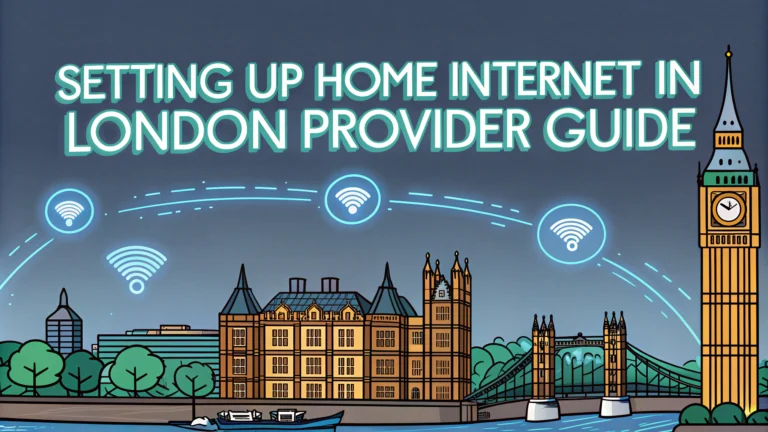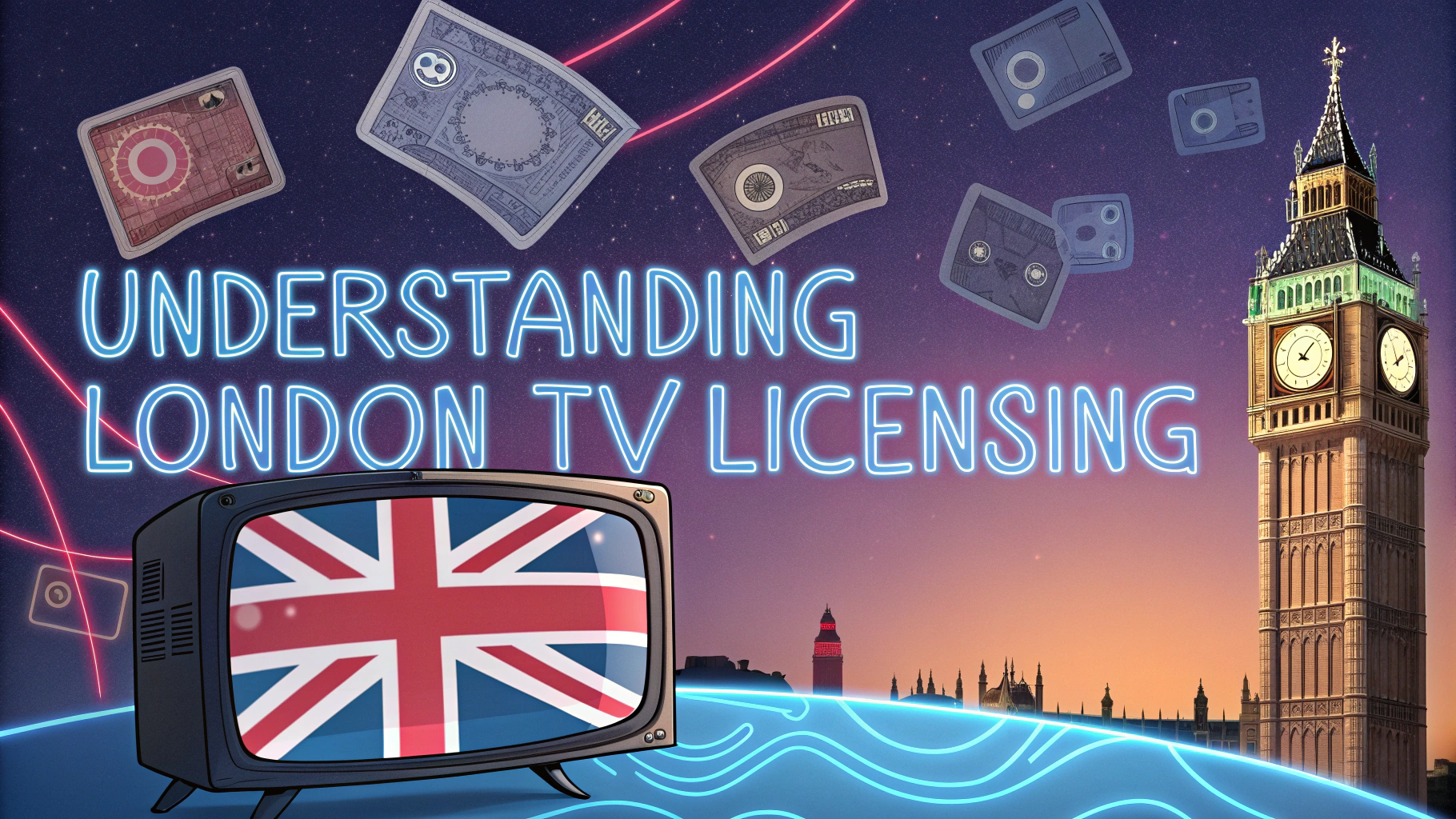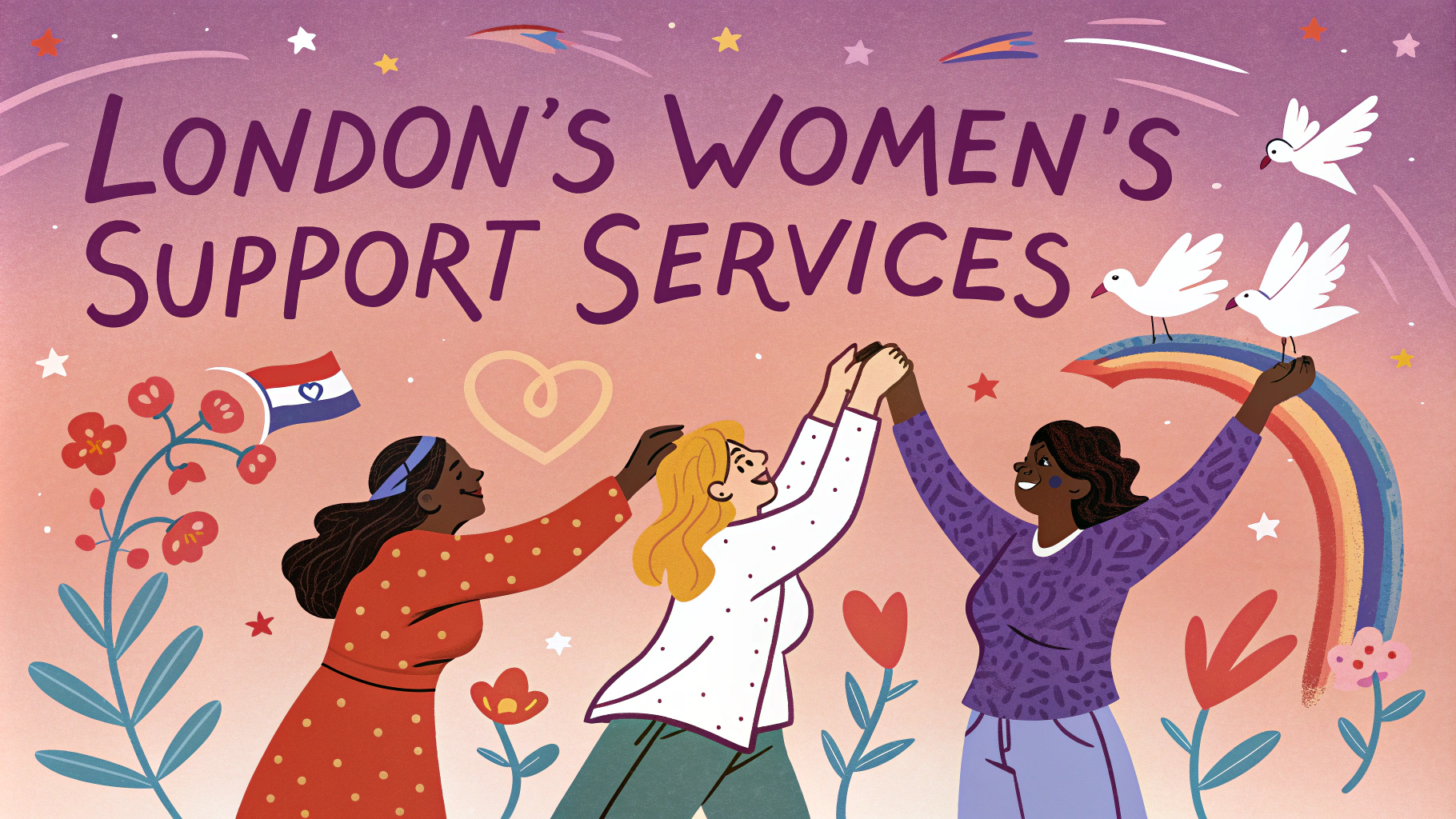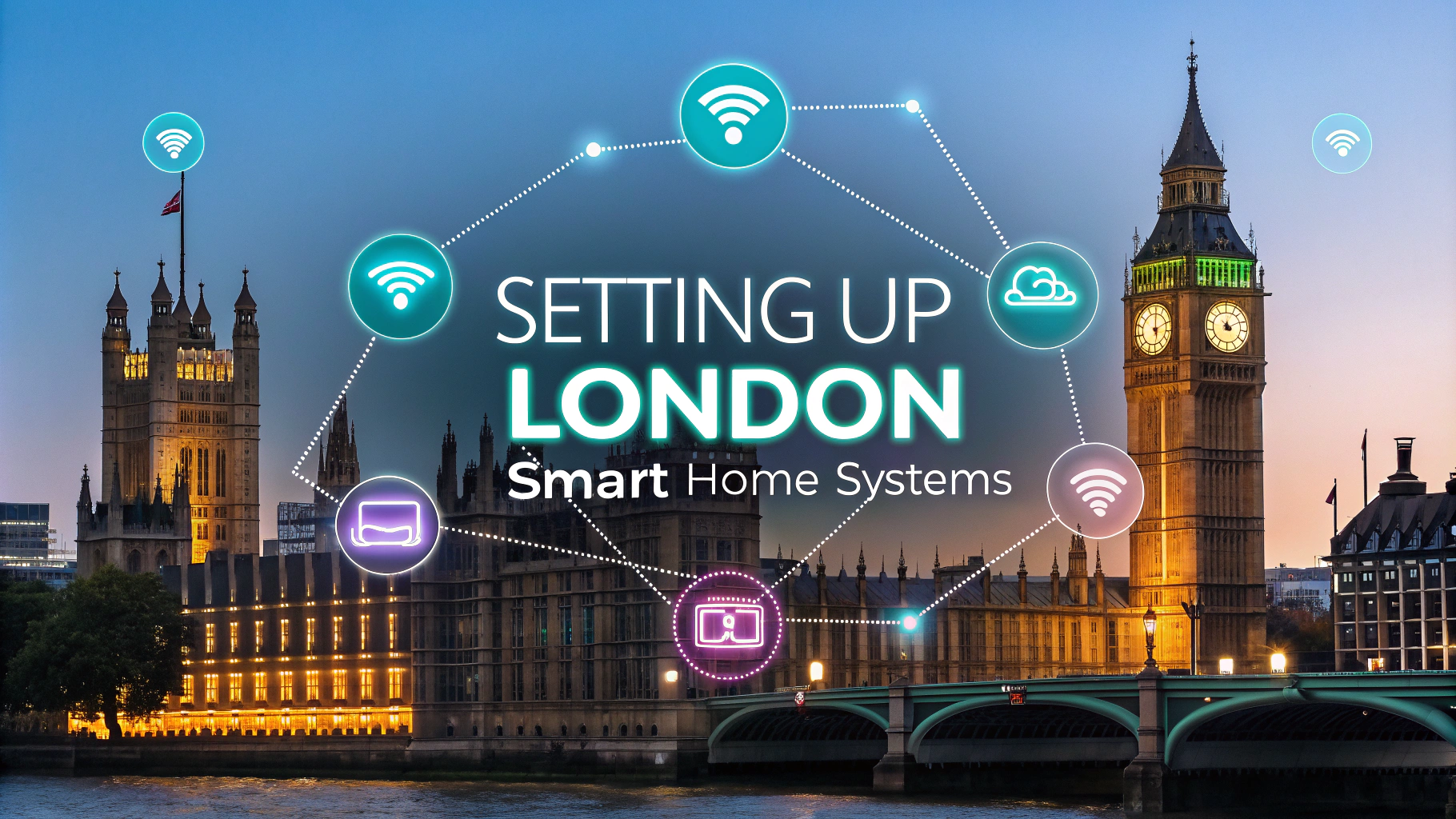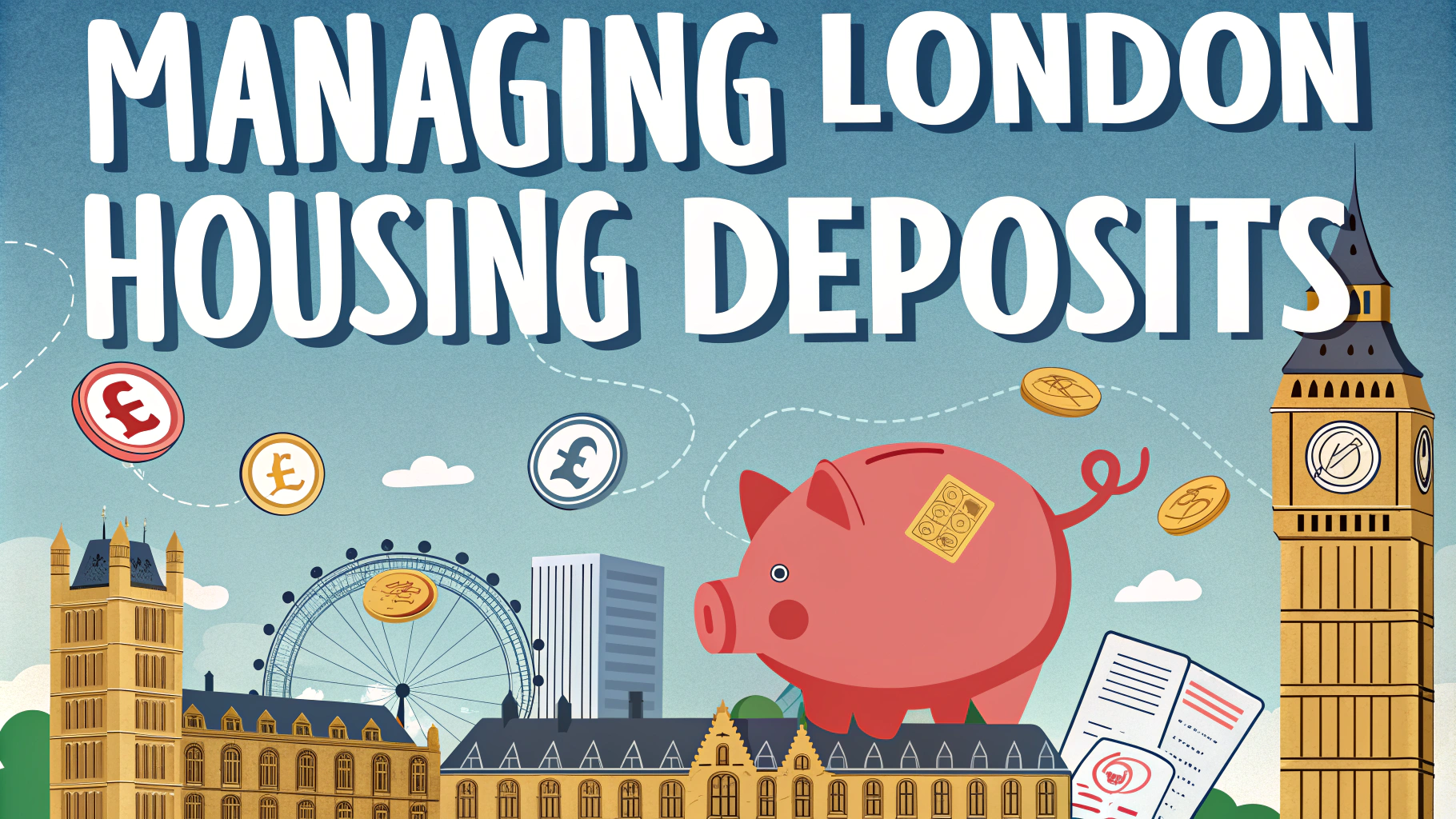Moving to London means setting up essential services, and getting reliable home internet should be at the top of your list.
The UK capital offers multiple internet service providers (ISPs) with varying speeds, prices, and coverage areas across different London neighborhoods.
This quick guide covers the main broadband providers, helps you compare plans, and walks through the setup process for your London home.
Major Internet Providers in London
- BT – Largest provider with 95% coverage across London
- Speed range: 36 Mbps – 900 Mbps
- Setup time: 2-14 days
- Contact: 0800 800 150
- Virgin Media – Fastest widely available speeds
- Speed range: 54 Mbps – 1.1 Gbps
- Setup time: 4-14 days
- Contact: 0345 454 1111
- Sky – Known for bundled TV packages
- Speed range: 36 Mbps – 900 Mbps
- Setup time: 2-14 days
- Contact: 0800 151 2300
Steps to Get Connected
- Check Availability: Use providers’ postcode checkers to see available services at your address
- Compare Plans: Look at contract lengths, setup fees, and monthly costs
- Schedule Installation: Book an engineer visit if needed
- Prepare for Setup: Clear access to connection points and be home during installation
Choosing the Right Speed
| Usage Type | Recommended Speed |
|---|---|
| Basic browsing & email | 10-30 Mbps |
| Streaming & working from home | 30-100 Mbps |
| Gaming & 4K streaming | 100+ Mbps |
| Large household/Heavy usage | 200+ Mbps |
Money-Saving Tips
- Look for new customer deals and seasonal promotions
- Bundle internet with TV and phone services when beneficial
- Check if your building has pre-installed services with special rates
- Consider longer contracts for lower monthly rates
Common Setup Issues
Most London properties already have phone lines installed, but some newer builds might need additional installation work.
Apartment buildings might have restrictions on installing new lines or satellite dishes – check with your property manager first.
Some areas, especially in older parts of London, might have limited access to fiber broadband.
Next Steps After Installation
- Test your connection speed using online speed tests
- Set up your Wi-Fi network with a strong password
- Configure any additional equipment like mesh networks for larger homes
- Save your provider’s customer service number for future reference
Getting Support
Keep your account number and postcode handy when contacting support.
Most providers offer 24/7 technical support through phone, chat, or online forums.
Consider getting a mobile hotspot as backup during initial setup or service interruptions.
When Things Go Wrong
Internet outages can happen for various reasons in London. Common issues include:
- Weather-related disruptions during storms
- Planned maintenance work (usually notified in advance)
- Infrastructure upgrades in your area
- Equipment failures
Additional Services to Consider
- Static IP – Useful for home offices and remote work
- Security packages – Including antivirus and parental controls
- TV streaming add-ons – Sports packages and entertainment bundles
- Phone line services – International calling plans
Understanding Your Contract
Pay attention to these key contract points:
- Minimum contract length and early termination fees
- Price changes after promotional periods
- Fair usage policies and data caps
- Moving home policies within London
Staying Connected in London
A reliable internet connection is essential for modern London living. Take time to research providers, understand your needs, and choose a service that matches your usage patterns and budget.
Remember to periodically review your package and compare market offers – providers often reserve their best deals for new customers or those willing to negotiate.
Keep all setup documentation and contact details in an easily accessible place for future reference, and don’t hesitate to contact your provider if you experience any issues with your service.
FAQs
- Which internet providers are available in London?
BT, Virgin Media, Sky, TalkTalk, Hyperoptic, Community Fibre, and Vodafone are the main providers in London, with coverage varying by postcode. - How long does it take to get internet installed in a new London home?
Standard installation typically takes 10-14 days, but can be quicker if the property has existing connections. Some providers offer next-day installation if infrastructure is already in place. - What documents do I need to set up internet in London?
Proof of address, photo ID (passport or driving license), and bank details for payment. Some providers may also require proof of tenancy if renting. - What’s the average broadband speed in London?
Average speeds range from 50Mbps to 1Gbps, with fiber optic connections in central London often reaching up to 900Mbps through providers like Hyperoptic and Community Fibre. - Do I need a phone line to get internet in London?
Not always. While traditional ADSL requires a phone line, fiber options from Virgin Media and some other providers don’t need one. Full-fiber services are increasingly available across London. - What’s the typical contract length for London internet providers?
Most contracts are 12-24 months, though some providers offer flexible 30-day rolling contracts at a higher monthly cost. - Can I get internet with poor credit history in London?
Yes. Some providers like TalkTalk and Plusnet offer services without credit checks. Alternatively, mobile broadband or prepaid services are available. - How much does home internet typically cost in London?
Monthly costs range from £20-£60 depending on speed and package. Basic broadband starts around £20, while high-speed fiber packages can cost £35-£60 per month. - What happens to my internet contract if I move within London?
Most providers allow you to transfer your service to a new address within their network. Some may charge a moving fee, and contract terms might change based on service availability. - Is temporary internet available for short-term stays in London?
Yes, through mobile broadband dongles, 30-day rolling contracts, or providers like Virgin Media who offer no-contract options.
